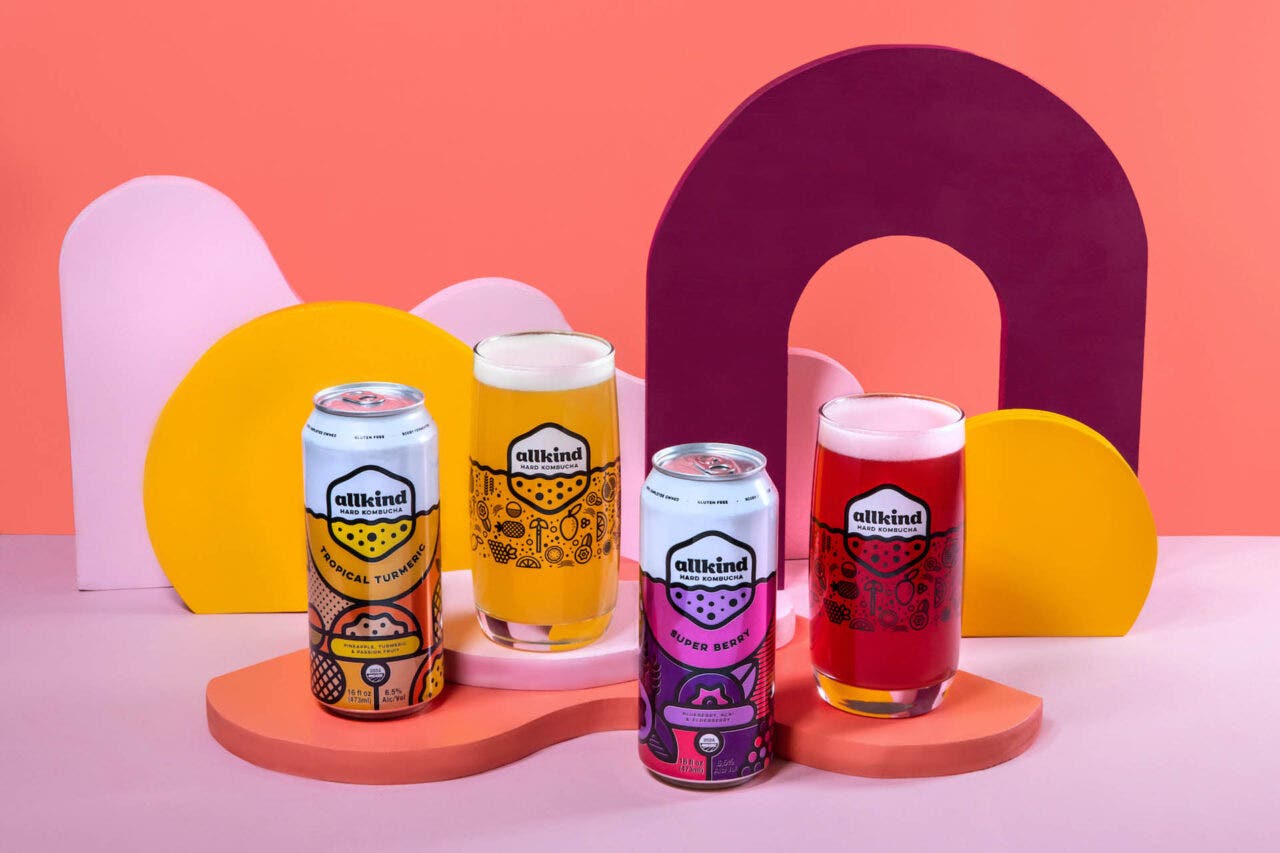One of the great selling points of kombucha, and why it frequently appears in health food stores and at farmers markets, is its natural probiotics. Fans of the fermented tea also say it can alleviate conditions like blood pressure and gout.
Hard kombucha adds a dose of alcohol to that formula. While it might seem counterintuitive to spike a seemingly healthful beverage with alcohol, hard kombucha makers disagree.
“We see a market for health-conscious people that still want a drink,” says Chris Kelly, head of brewing operations at Vermont’s AfterGlow Hard Kombucha. He believes that people who start their day with traditional kombucha might want to transition to a spiked version at happy hour.
“Overall, people are watching what they drink, and what is in their drinks,” he says. “Hard kombucha gives them another option to make choices based on their lifestyle.”

Hard kombucha is regulated by the Alcohol Tobacco Tax and Trade Bureau. As a controlled substance, it’s not permitted to be promoted as “healthy” or having health benefits. However, that has not stopped many companies from using words like “natural,” “organic” or “pure” to wink at health-conscious consumers.
Traditional kombucha is made by steeping tea, and sometimes other botanicals and ingredients, in hot water. The liquid then rests in a symbiotic culture of bacteria and yeast, called scoby. The scoby is a jelly-like mass that consumes sugars and helps create acids. The carbon dioxide it produces gives kombucha a little fizz. Bits of scoby often make it into bottles of unfiltered kombucha.
As a controlled substance, hard kombucha is not permitted to be promoted as “healthy” or having health benefits. However, that has not stopped many companies from using words like “natural,” “organic” or “pure” to wink at health-conscious consumers.
To make hard kombucha, brewers add additional sugars to the liquid and pitch it with clean fermenting yeasts, like a beer ale yeast or Champagne yeast. This creates additional alcohol during fermentation.
The scoby can generate trace amounts of alcohol in traditional kombucha, but some hard versions have more than 8% alcohol by volume (abv). Most are in the 5% abv range, which appeals to consumers who seek the sort of moderate buzz provided by hard seltzers like Truly (5% abv) and White Claw (5%).

Unlike the highly competitive hard seltzer market, hard kombucha is still an emerging category. Over the last year, it’s grown 61.7% and generated more than $30 million in sales, according to Nielsen, which tracks industry data. Early adaptors can cultivate a loyal clientele.
“Hard kombucha is a rapidly growing segment, especially in larger coastal markets where we don’t currently sell our beer,” says Eric Smith, CEO of Odell Brewing, which debuted its AllKind Hard Kombucha last summer. “Since we’ve developed a shelf-stable product that’s brewed separately from our beer, we want to give it the opportunity to meet new people in further markets.”
The biggest brewery to try hard kombucha is Sierra Nevada Brewing Co., which created a line called Strainge Beast Hard Kombucha. The brewery uses a special production space for hard kombucha to ensure its microbes do not interfere with the rest of the brewery.

Sean Lavery, director of technical brewing and innovation for Sierra Nevada and Chico Fermentation Project, was drawn to hard kombuchas by the fermentation science involved in its production.
“Hard kombucha needs the right environment, to be handled correctly in the right conditions, and that plays to our core strengths,” says Lavery. “I’m happy we can bring our scientific knowledge into the kombucha world.”
He believes there’s room to grow, too.
As with other beverages, hard kombucha producers are experimenting with flavors. They add herbs, fruits, spices and more to entice consumers.
Aaron Telch, co-founder of California-based Jiant Hard Kombucha, says the company takes “culinary approach” to its flavor combinations, which include elderflower and jasmine, and ginger and lemongrass.
What’s the optimal time for hard kombucha? Telch sees it fitting into an afternoon setting when “you want something light and refreshing that is enjoyable and delicious, and you want a few of them.”
Last Updated: May 8, 2023















